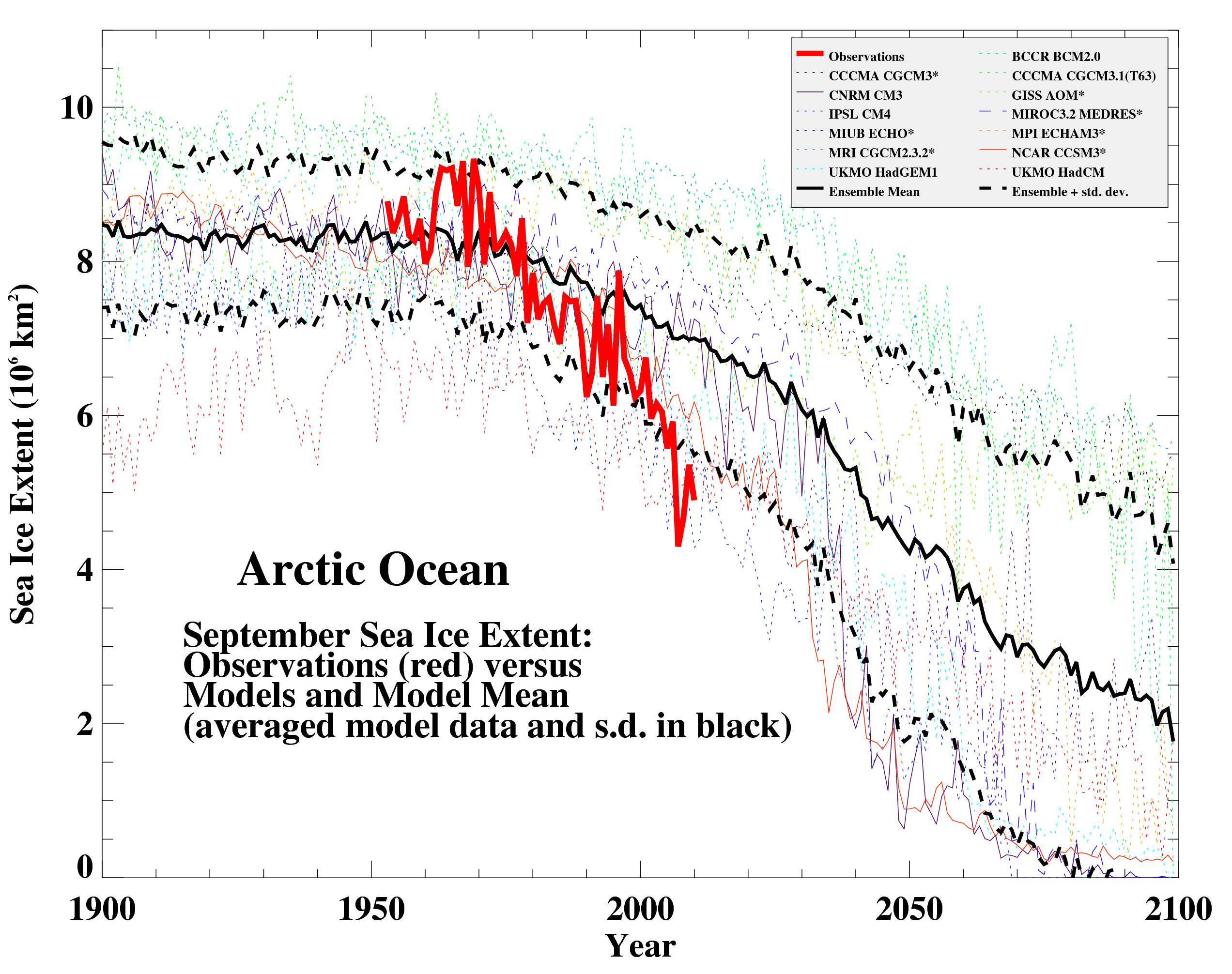Sigh. OK. I'll believe your charts instead of my lying eyes. Nobody ever said there could be an ice-free arctic in your world, so that's fine.
Joe, I give up. You absolutely refuse to recognize the point I'm making.
No. I fully recognize the point you're trying to make; but you're arguing that news quotes equal established science and documented/documentable science models. That's flat out nonsense.
Didn't you work in news media before? You should be well aware how a single quote can be taken totally out of context, repeated and ultimately mean nothing close to what was originally conveyed.
I strongly suspect at least one or two of your soundbite snippets from your link came from an exchange like this, circa 2007:
Reporter: What is happening to the Arctic sea ice?
Scientist: We are seeing an unprecedented drop in ice this year; well beyond any projections anyone has made related to summer sea ice losses.
Reporter: Do you think this will continue?
Scientist: If the trend we are seeing this year were to continue for the next few summer seasons, we will see an ice-free Arctic by 2013 or so.
Reporter: So, the Arctic could be ice free as early as 2013?
Scientist: If the trends were to continue, although it's unlikely we'd have several summers like this in a row.
Then, someone only takes the snippet about "we will see an ice free Arctic by 2013" and runs with it and ignores the rest of the conversation. The scientist never made an outright prediction, only a comment in the unlikely event a trend were extrapolated forward, as unlikely as that trend may be.
Thus, quotes w/o any context of the full interviews are nonsense to claim "scientists told us the Arctic would be ice free by 2013" and "they were outright wrong", when their actual publications and ice loss models were never showing anything of the sort - even the most extreme ones.
This is why you cannot trust random comments, particularly those used in articles like the one you posted. ONLY IF you go to the original article and interview can you gather any context.
And we played this same game with you a year ago, when the 2013 date came out again, and the link you provided was that the Arctic could be ice free by the summer of 2016 ± 3 years. Thus, the prediction cannot yet be assessed until the summer of 2019. And that was merely an offhand comment by a Navy officer (or scientist) who did not do modeling, and was simply eyeballing the current trends.
The actual scientific evidence and models ALL project at least 2040 and most are well beyond 2050.
However, since observations are tracking so far below the models, it's becoming more and more likely that we'll see no ice in the Arctic (or the Navy's definition of 'no ice', which is <15% ice coverage) by 2040. And that doesn't mean zero ice, it means navigable sealanes with <15% icepack. That was the OTHER distinction with the quotes from the source article (which were NOT evident in the subsequent denier links).


